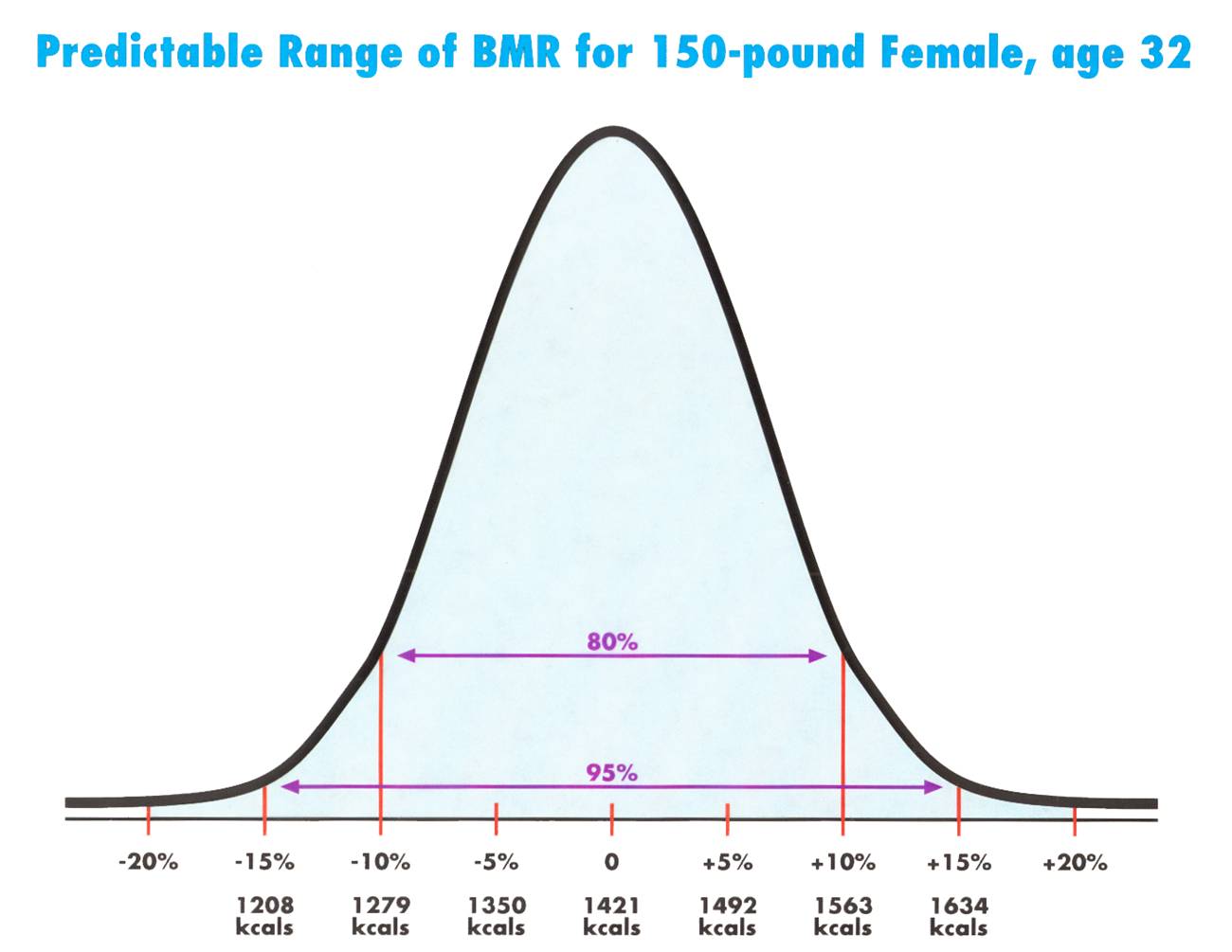Normal Range of Metabolism
You may not be aware that the (basal) metabolic rate (BMR) associated with a given body weight can vary ±20%. Like many things in nature metabolic rates fall into a "normal" bell curve. The middle of the bell curve is the "expected" or average metabolic rate.
Another way of saying this is that 80% of you have a metabolic rate that is ±10% of the middle of the bell curve (for your gender, height, weight, and age).
The chart here shows an example for a 150-lb. 32-year-old female, using the World Health Organization's formula for metabolic rate.(1)

The American Dietetic Association finds that after careful review of various prediction equations that the most accurate equation currently available is the Mifflin-St Jeor equation, which would give a lower zero point (of 1,393 kcals), than what is on the chart here.
The popularity of having your metabolic rate measured has grown in the past decade as technology has provided easier less invasive tools to measure it, like the MedGem, BodyGem, or Korr Ree/Vue. These devices quickly became popular at many fitness and weight loss centers, as well as with other professional providers of weight loss services.
Knowing your metabolic rate is a huge advantage if you want to lose weight. That's only a start however! Separating facts from fiction regarding your metabolic rate is also important, because there is more misinformation out there than accurate information.
Researchers who specialize in this area of literature conclude that (at a given weight*) any individual's metabolism varies only 2- to 3%:
"within subject variations in BMR are small and insignificant, even when energy intake and physical activity are uncontrolled."(2)
You may be asking, "but can't I increase my metabolism more than that?" Well an awful lot of supplement labels and books claim so! Let's take a closer look at that question tomorrow...
*If you gain weight your BMR will be higher; and if you lose weight your BMR will be lower (because it's based on body mass/weight).
________
(1) Schofield WN. Human Nutrition: Clinical Nutrition. 1985;39(Suppl1):5-41
(2) Shetty PS, et al. Eur J Clin Nutr 1996:50(1) s11-s23
